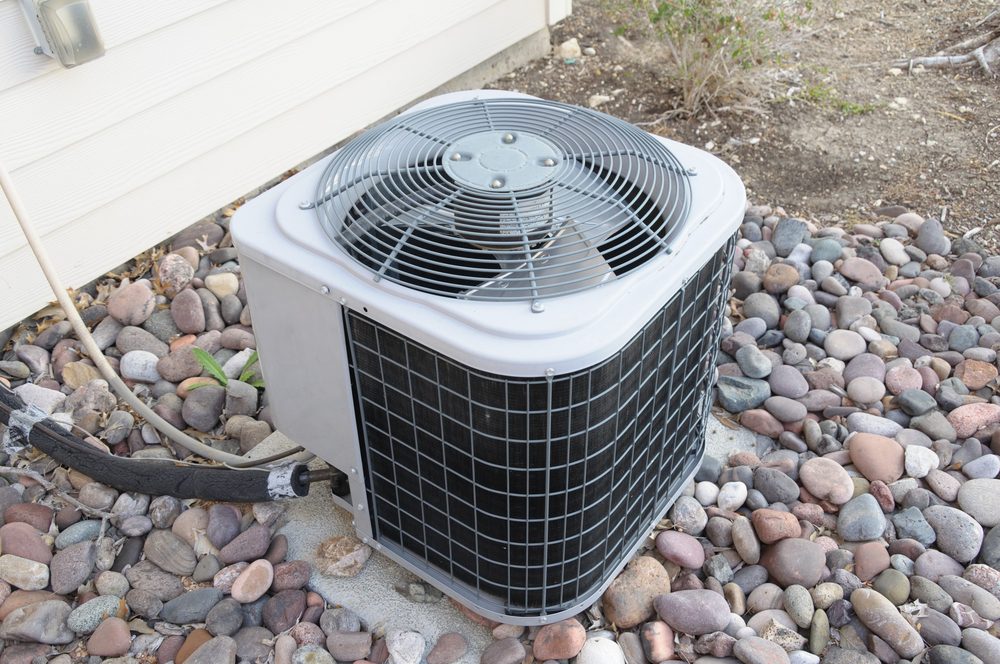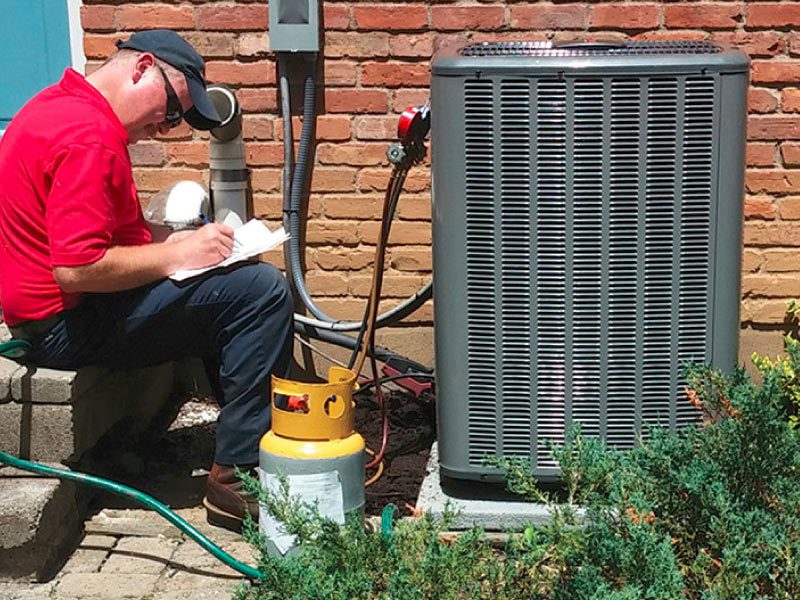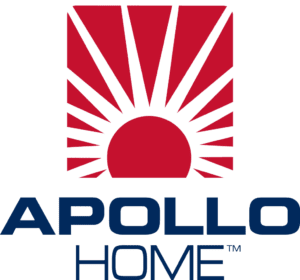New HVAC System Prices Going Up: Why Costs Will Soon Rise
If your air conditioner, furnace, or heat pump limped through last year, be advised new HVAC system prices is on its way up. In this blog, we’ll review the federal regulation which affects a major component of HVAC systems and how it impacts the new HVAC system cost.
We’ll cover the pros and cons of the change as well as how you can benefit. Ready to put numbers on paper? Estimates and second opinions for HVAC system relacements are free at Apollo Home.
What’s Changed with HVAC System Prices?
The Energy Policy and Conservation Act of 1975, or EPCA, guides the Department of Energy’s mission. Basically, the EPCA established the DOE’s energy conservation program.
Deep in the oil crisis of the ‘70s, the program covered four parts: testing, labeling, designation of Federal standards of energy conservation, and certification and enforcement protocols.
Therefore, the DOE oversees an obligation to establish conservation standards for “electricity used for the purposes of air circulation through ductwork.” The DOE’s shorthand for this is residential “furnace fans.”
In July 2014, the Department of Energy published a final rule (79 FR 38129) and dictated the energy conservation standards for residential furnace fans. HVAC manufacturers are required to comply with these new standards for residential furnace fans as of July 3, 2019.
Because it affects the circulation of air in ductwork, this rule also pertains to residential air handlers. The change includes air conditioners and heat pumps because they use air handlers and furnace blower fans. This is not a recall or a requirement to change equipment currently installed. This is only for new systems manufactured after July 3, 2019.

How it Affects a New Replacement HVAC System Cost
The fan motor is the simplest way for HVAC manufacturers to address this new rule. Up to this point, most systems use a standard induction motor. Induction motors operate at an average efficiency of 60 to 65 percent.
This change indicates an industry shift to electronically commuted motors or ECMs. Generally, ECMs feature two operation modes: constant torque of the motor or constant system airflow.
Often used in high-end systems, ECMs in all systems mean the average new HVAC system cost will increase. This increase might be enough for some homeowners to decide to repair their current HVAC unit with an induction motor instead of going for an equipment upgrade or replacement.
Others will seize the opportunity to start the clock on the payback period with greater energy efficiency and lower utility bills.
Click here to Request a Consultation and Free Estimate
Pros of the New HVAC System Cost
Is a new HVAC system worth it? There are actually several perks to consumers when it comes to this change.
Energy Savings
An ECM uses less energy. The DOE predicts the new fan motor standards will reduce carbon pollution by up to 34 million metric tons, or the annual equivalent of electricity use by 4.7 million homes.
They expect Americans to save over $9 billion in home electricity bills by 2030. Also, as more manufacturers switch to ECM production, consumers see more competitive improvements in quality and pricing.
Electrical Safety
Many of the new ECMs eliminate the weakness of older models with built-in surge protection.
Consumer Experience
Electronically commuted motors operate more quietly, so HVAC operation is less noticeable.
Quick Installation for Repairs and Fan Motor Replacements
Most replacement ECMs use programming software, which makes it easier to stock HVAC technician trucks with fewer motors that cover a greater range of applications. This eliminates the necessity to carry a variety of motors all the time.
HVAC techs can complete more fan motor replacements in a single visit. Some motors also use Bluetooth programming abilities so techs can program fan speed during operation. This translates into a faster set-up for homeowners.

Cons of the New HVAC System Cost
While there are many benefits, there are also a few reasons you may want to think again before purchasing a new HVAC system.
Motor Set-up
For the best chance of success, a qualified HVAC technician must install the motor. Programming across different models is often tricky. It’s easy for an amateur to misinterpret instructions.
Ductwork Issue Potential
Oversized or undersized ductwork may become a significant problem. What might have been a minor issue in the past may surface as major with the installation of the ECMs. Moving air too slowly because the duct is too big wastes energy, and creates uneven temperatures and discomfort. Eventually, it strains your HVAC system. To prevent future problems, address and repair ductwork, if necessary.
Thermistor Issues
Historically, some ECMs struggle with thermistor issues. In some cases, the motor module required replacement two or three times during the warranty period. Generally, undersized ductwork is the origin of the problem.
Because ECMs possess some intelligence, they attempt to meet the static pressure of the torque their programming specifies. The thermistors overheat and fail after pushing through the high-static pressure.
Price
The initial new HVAC system cost may be an obstacle for some homeowners.
Manage a New HVAC System Cost with Finance Options
A new heating and air conditioning system is one of many major investments in your home. To assist homeowners in Northern Kentucky and in Cincinnati, Apollo Home offers finance options for major equipment and service purchases.
It’s often better to address a problem or purchase equipment right away if the absence threatens your safety or health. In addition, many homeowners choose to upgrade a low-efficiency air conditioner, for example, with a high-efficiency model. The new energy-efficient air conditioner provides utility savings; plus it’s under warranty.

Trust Apollo Home to Help with New HVAC System Cost Strategies
Have new HVAC system prices gone up? Federal regulations on energy efficiency standards for fan motors will cause new HVAC system costs to rise. This is ultimately better for consumers who will save money on monthly utilities. The upfront cost will be higher, so consider HVAC financing options.
Furthermore, be sure to protect your investment with an Apollo Care Plan membership. This preventive maintenance plan includes two heating and air tune-ups each year, as well as an annual evaluation of your plumbing and electrical systems.
Members also enjoy discounts, priority scheduling, and a dedicated VIP phone number. You can’t put a price on peace of mind, but finance options and preventive maintenance contribute nicely.
Apollo Home has served the home comfort needs of the greater Cincinnati area since 1910. From heating and air to plumbing and electrical services, Apollo Home employs friendly and qualified professionals.
All plumbers and electricians are licensed, and HVAC techs are NATE-certified. We’re constantly investing in continued education for our team so they stay updated with all brands and technologies.
For example, our team is well-versed in the repair and replacement of ECMs as well as induction motors. In addition to technical training, our bonded and insured technicians pass rigorous background checks. We do all of this to better serve Cincinnati and Northern Kentucky residents.
We’re pleased to have received many awards. These include Contractors of the Year from the Air Conditioning Contractors of America, Cincinnati City Beat’s “Best in Cincinnati” for Home Services, Super Service Award from Angie’s List, and an A+ Accredited Business rating from the Better Business Bureau. Contact us for assistance with heating and air, plumbing, or electrical services.
